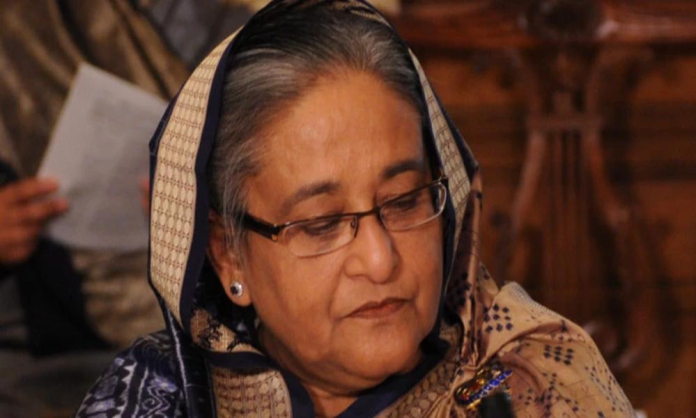A Dhaka court sentenced former Bangladeshi Prime Minister Sheikh Hasina to six months imprisonment for contempt of court, marking the first judicial verdict against her since she fled to India amid a popular uprising last August.
The three-member bench of the International Crimes Tribunal, led by Justice Md Golam Mortuza Mozumder, delivered the ruling on Wednesday, finding Hasina’s leaked audio remarks, in which she declared:
There are 227 cases against me, so I have a license to kill 227 people.
Shakil Akanda Bulbul, a fugitive leader of Hasina’s Awami League, received a concurrent two-month sentence in the same case.
The tribunal confirmed the authenticity of the viral recording, noting Hasina neither appeared in court nor contested the charges. Chief prosecutor Muhammad Tajul Islam stated the remarks constituted “contemptuous behaviour” aimed at discrediting Bangladesh’s legal system.
This conviction arrives as a separate tribunal advances proceedings against Hasina for crimes against humanity, alleging she ordered state forces to commit killings during the July 2024 student-led uprising that precipitated her ousting.
The verdict coincides with the interim government formalising the legacy of the rebellion that ended Hasina’s 15-year rule. On Wednesday, the Cabinet Division declared 5 August, the date of her resignation and flight, as “July Mass Uprising Day”, designating it a Category A public holiday.
Rebellion’s legacy and institutional memory
Simultaneously, 16 July, the day police killed student protester Abu Sayeed in Rangpur, was declared “July Martyrs’ Day” (Category B observance). These decisions annulled an earlier plan to mark 8 August as “New Bangladesh Day,” following public outcry.
Sayeed’s death on 16 July, 2024, ignited nationwide protests after video showed police firing birdshot into his chest at close range while his arms were spread in peaceful defiance. His killing, documented by Amnesty International, catalysed a movement that ultimately claimed over 1,400 lives according to UN estimates.
The contempt sentence underscores the interim authorities’ pursuit of legal accountability while institutionalising the rebellion’s memory. Yet it leaves unresolved whether Hasina will face extradition from India, where she remains exiled as Bangladesh navigates a fragile transition under military-supervised civilian rule.
